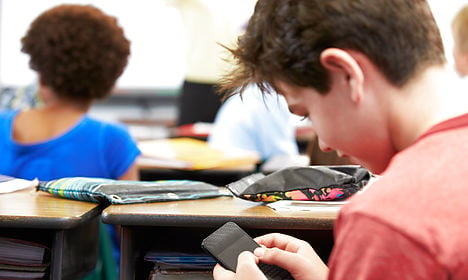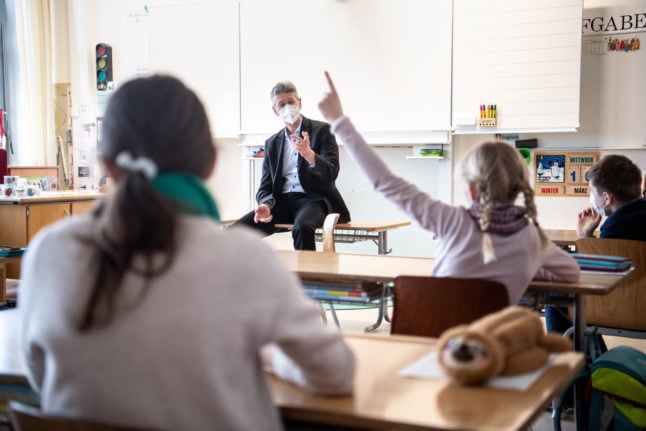At an increasing number of schools around Denmark, pupils have been required to leave their mobile phones in cupboards for the duration of the school day, reports broadcaster DR.
Most Danish schools allow pupils to carry their mobile phones with them in class and parents often call their children during recess times or send SMS messages during the day. Teachers are allowed to confiscate mobile phones during lessons if they consider them to be a distraction.
But now teachers, pupils and parents at a number of Danish schools have agreed to go mobile free during the school day.
“Some people say that students are capable of multitasking and being on Facebook at the same time as having mathematics lessons, but nobody can be 100 per cent concentrated on two things,” Lyreskov School’s head teacher Jan Sønderby told DR.
Sønderby said that the effects of the scheme were clearly evident in the school’s classrooms.
“It has changed the attention there is with regard to lessons, where the idea is that (pupils) learn something,” Sønderby said.
At Nørrebro Park School in Copenhagen, where mobiles have been absent from seventh grade classrooms since last September, a tranquility has descended over pupils, says head teacher Henrik Wilhelmsen.
“It has created a sense of calm in the year group,” Wilhelmsen told Jyllands-Posten.
“‘Mobiles can cause conflicts, for example when pupils send silly messages to each other over various types of social media. We don’t have this any more. The conflicts we have now are normal, ‘old fashioned’ conflicts where there’s a face-to-face disagreement that’s easier to manage,” Wilhelmsen continued.
Vibeke Domar, head teacher at Kongehøj School in the town of Aabenraa near the border with Germany, said that the school ban on mobiles also changed the way pupils spent their break times.
“The pupils have been very busy spending their breaks on other things, so we have reintroduced the concept of ‘play time’, we have bought footballs and we go out and spend time together,” Domar told DR.
While many of the staff at Nørrebro Park school agree that mobile phones can be disruptive, others value them as a learning resource and way of improving I.T. skills, so debate about Nørrebro Park school’s long-term mobile policy is still ongoing, Wilhemsen said to Jyllands-Posten.
Ninth grader Jens Vase, who is also chairperson for the Danish School Students Association (Danske Skoleelever), told Jyllands-Posten that he saw lack of concentration in class as being down to uninspiring teaching rather than the distraction of mobile phones.
“There was also problems with concentration before the mobile phone was around. Back then it was just the window that could be stared out of, so it’s not a new problem,” said Vase.
“The way forward is not necessarily to demonize the mobile phone and take it away from pupils. Instead, lessons should be structured in a way that makes them more exciting for pupils,” Vase continued.



 Please whitelist us to continue reading.
Please whitelist us to continue reading.
Member comments